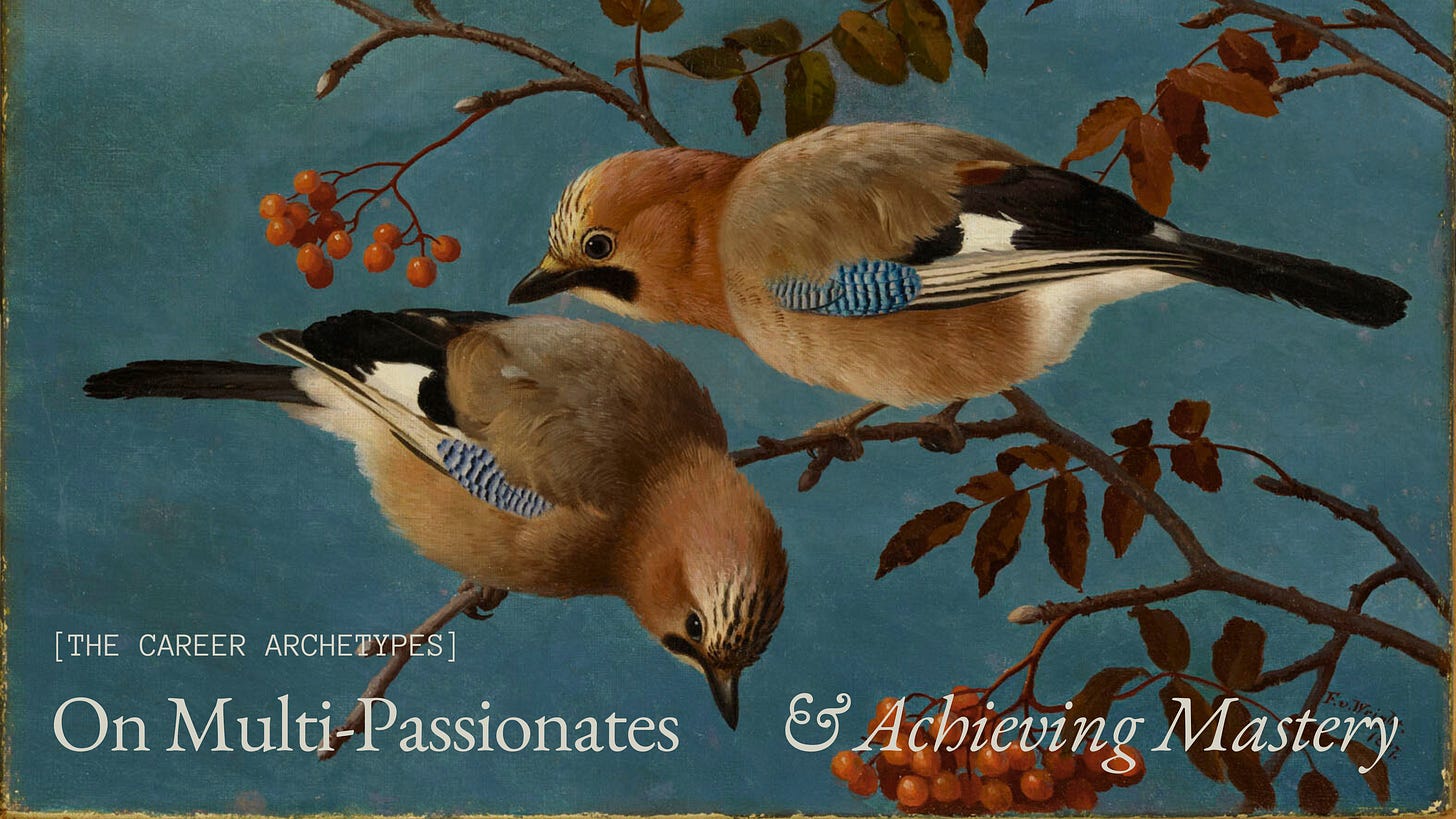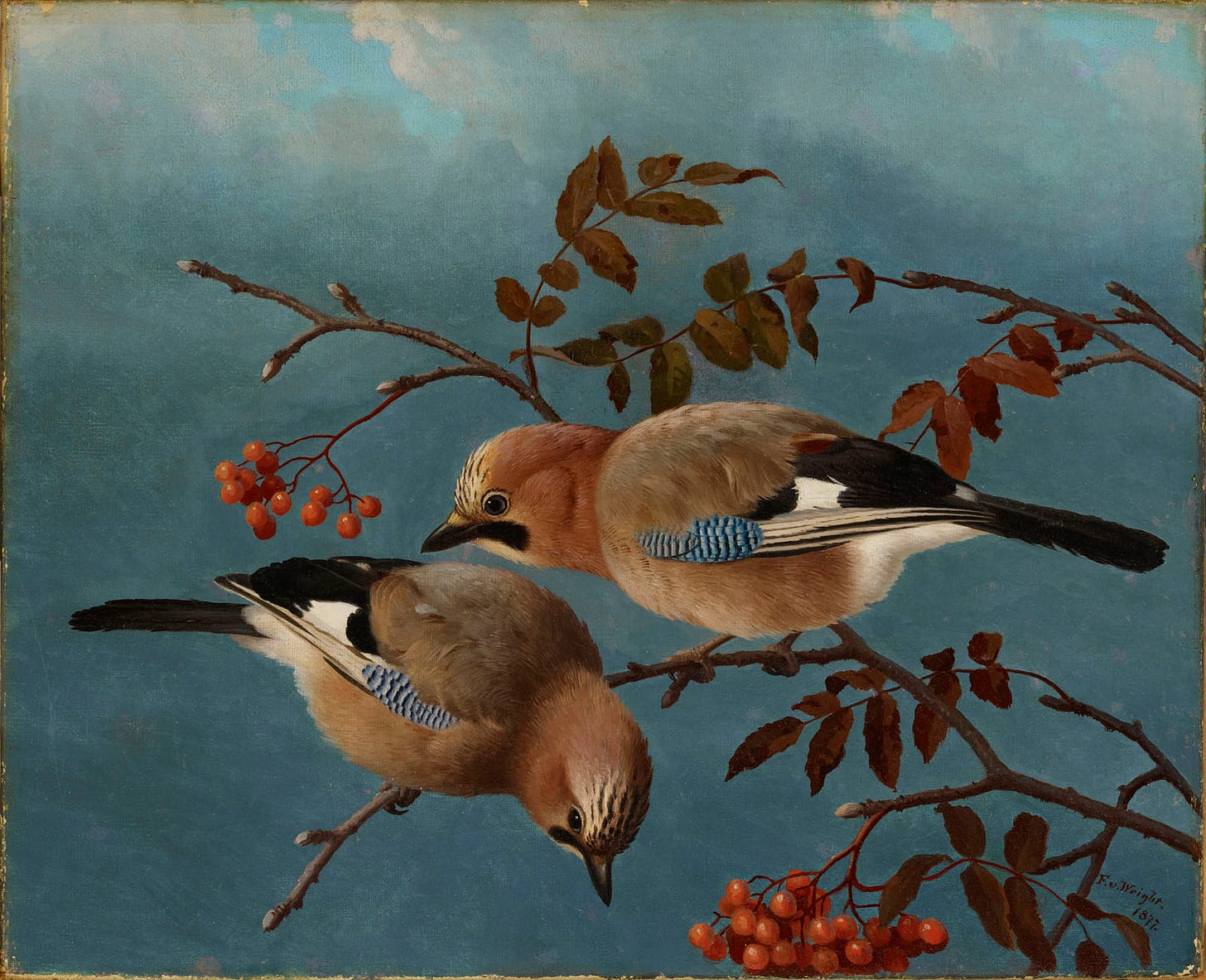The inner conflict multi-passionate people must resolve for mastery
Either/or paradigms holds us back from mastery
Multi-passionate people feel career path tensions on a more regular basis than others.
Why? Because domains that have been sketched out for others, with all the steps and instructions, don’t exist for those who have more than one interest.
With mastery on the line, multi-passionate people can find themselves looking to commit to paths through dualistic thinking. An either/or selection criteria that doesn’t allow them to do their best work. If we take one common multi-passionate tension, the desire to create and the want to help others, an either/or paradigm reveals itself. Which one should I choose?
But why are we thinking of this in an either/or paradigm and why does it hold us back from mastery?
Isn’t it strange that when we think about creativity and service, we think about them as different paths? Separate categories of existence. Yet we can think of paths that have both, correct? When the field of psychology hit the scene in the late 1800s, it was radically creative. Ideas we’d never heard of before such as the unconscious, the psyche, repression and archetypes entered culture's everyday language. Of course these creative insights, being in psychology, were in service of other people. Helping them deal with their lives. But wait a minute, isn’t creativity and service meant to be categorically different? The paradigm of either/or doesn’t hold up here.
When we look at the creative and service landscape, we can quickly see that one can be creative in the service industry and one can serve others through creative works. After viewing a Constance Mayer painting or watching a Paolo Sorrentino film we have gained insight, new thoughts, different ways of seeing the world, emotional entry points, and more. Creative yes, but served nonetheless. When Ignaz Semmelweis championed handwashing to the medical profession, saving millions of lives, his act was creative. A new way of doing things was established which served the world.
So why do multi-passionate people have this tension between creativity and service?
When it’s so clearly obvious that we can have both. When we find ourselves with this tension, it means we’re looking at the world from an industrial point of view. Seeking specialisation because that’s how the world seems to work rather than through the lens of mastery. Because the paradigm of either/or can be useful, but not in the context of pursuing mastery as someone who is multi-passionate.
Most commonly mastery is viewed through the lens of a subject. A domain of expertise. A skill honed through decades of practice. But this lens alienates the nature of multi-passionate people who are best equipped to view the interrelation of things and use those varieties of connections to bring forth insight. Which is why multi-passionates face Epistemic Exile. A term I coined because multi-passionate people are forced to learn and specialise in ways that are built on the knowledge frameworks of single domain mastery. This way of seeing the world doesn’t resolve the conflict, only amplifies it. Instead of this I propose another way of resolving this conflict. A new way of seeing the world.
The multi-passionate people who have succeeded and found mastery did not see the world as pre-defined subject areas or domains, rather they thought through problems and desires.
When Leonardo Da Vinci wanted to draw flowers, he didn’t stay within art, he looked to nature. What he was being taught wasn’t good enough.
When Carl Jung wanted to understand the psyche he didn’t stay within Freud’s established works, he went to Alchemy, Astrology, Mythology. Psychology as a field couldn’t explain what his patients were going through.
When the philosopher Simone Weil wanted to understand suffering she would enter the factory floors to witness class oppression whilst also spending time in isolation pondering God. Simply teaching wasn’t enough, she needed to find it in the world.
In other words, those that pursue mastery and have multiple passions don’t stay within their field, not because they’re rebelling, but because it doesn’t have what they’re seeking.
The wrong paradigm is being used to ask, “Do I need to create or serve others?” And instead the multi-passionate person needs to ask, “What am I trying to do?” Followed by, “And where can I find the knowledge, no matter the field, to do it?”
That is how they begin pursuing mastery.
Career Archetypes Membership: Looking to discover your unique Career Archetype + find your vocation? Join our 8 week course + community here ($29/month so it doesn’t break the bank) 🖥️
“The program’s deep, expansive lens truly feels like it will go down in history as a fresh and pivotal approach for stepping toward one’s authentic path”— CA Student
“The course is revelatory, it is unlike anything else I've done” — CA Student
More free resources: For more insights & encouragement follow us on Instagram @thecareerarchetypes or tune into The Career Archetypes Podcast on Spotify 🎧







Thanks for these words Joel. The articulation of this perspective in the midst of our 'put it in a box and label it' society is refreshing.
I love these distinctions. They feel so true and
validate those of us who are made to feel unproductive or scattered.